Inside Look
Boston Strong?
06/11/13 09:59

Written by Stephen Vittoria
(Los Angeles)
Rather than stand behind the dedicated men and women of Steelworkers Local 8751 – the Boston School Bus Drivers Union – the Mayor of Boston, along with the notorious transnational union-busting corporation Veolia, helped to orchestrate the demolition of union leadership, further weakening the rights of rank and file members. It was union busting at its worst and it’s become an all-too common practice in America as we watch corporations line up at their gluttonous trough while unions suffer.
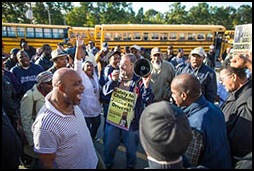
In a show of solidarity, union workers throughout Boston (and throughout the U.S., Latin America, South America, and elsewhere) have stepped up to support their brothers and sisters as they fight another corrupt machine for their rights.
On Friday, November 1, “Mumia: Long Distance Revolutionary” was scheduled to screen in Boston. The Boston premiere of the film at Hibernian Hall was organized and sponsored by the Boston School Bus Union and the Women’s Fightback Network. At 10am that morning, the leadership of the union was fired by Veolia.
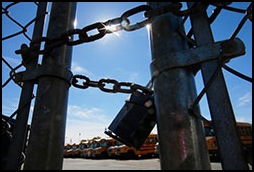
Late that evening after the Boston premiere, I received an email from Steve Gillis, one of the organizers (and now one of the School Bus Union 5) and he reported that three hundred people packed the hall and celebrated the life and revolutionary times of Mumia. In part, his email reported:
“You should know that your film reached deep into Boston's most oppressed communities last night, and that it did what only truly great film can do, provide a centerpiece and catalyst for new thought and vision about a better world, and how to move forward toward that goal.”
Steve’s note to me meant a great deal. It’s why filmmakers should make documentaries – that moment when you realize your work touched a nerve and offered some truth, some hope, and some inspiration to others.
Also, our thanks to Miya X, Chuck Turner, Andre Francois, and Monica Moorehead, who all spoke at the event – their longtime support of Mumia Abu-Jamal and his struggle for freedom inspires me.
For more information and how you can help:
http://bostonschoolbus5.org
American Bullshit
03/06/13 10:44

Written by Stephen Vittoria
(Los Angeles)
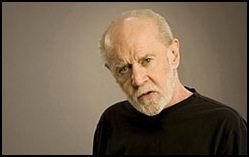
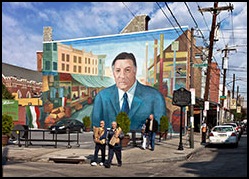
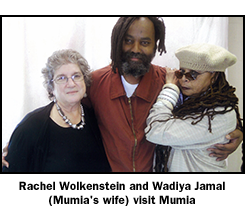
The theft of Mumia’s freedom, and the destruction of his life, began in the early morning hours of December 9, 1981 when the Philadelphia Police Department – and later the District Attorney’s office – began to literally manufacture Mumia’s guilt… and in the wake of their nefarious and reprehensible actions we find his innocence, concealed and buried beneath a mountain of lies. Working closely with Mumia’s long-time attorney, legal consultant, and his sister-in-arms Rachel Wolkenstein, I made this short film, Manufacturing Guilt, for one reason and one reason only: to counter the fabrications, the myths, the oft-repeated falsehoods, and of course the outright lies regarding this wicked and despicable miscarriage of justice.
Based on the actual record of investigations and court filings from 1995 to 2003 - evidence denied in the courts and ignored by the press - Manufacturing Guilt details the astonishing efforts of the Philadelphia Gestapo along with Ed Rendell’s DA's office to frame him for a crime he clearly did not commit – the murder of Daniel Faulkner.
Mumia Abu-Jamal doesn’t deserve a new trial. Mumia Abu-Jamal deserves to be set free immediately, right now. Yesterday in fact… because the facts of this case will make a dumb man smart. To paraphrase Bob Dylan – all the facts in this case add up to one big truth: that Mumia Abu-Jamal is an innocent man existing in a living hell. The film is unequivocal in its force regarding Mumia's innocence because the facts are equally unmistakable. It is truly an eye-opening experience.
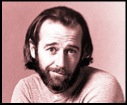
Imagine
15/05/13 10:23

Written by Stephen Vittoria
(Los Angeles)
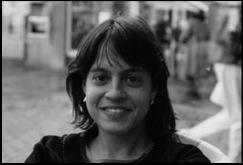
Too few of us, when we ride that bus to the statue on the hill, even notice the chasm between opulence and misery, even fewer have a crisis of conscience. If you know anything about Mumia Abu-Jamal, you already know this: when he rode the bus to the statue on the hill, the images of opulence and misery rocked his world and a crisis of conscience took deep root in his soul.
Liberation theology – the political and spiritual movement that understands the teachings of Jesus Christ as an emancipation from the repressive reality of unjust political, economic, and social tyranny – has come under attack from the sadistic gatekeepers of Christendom and their armed forces employed by the American Empire. Liberation theologians and those who become naturally aligned with the justice they offer are attacked as being Marxist and communist and because these movements have dared to challenge the status quo, also known as predatory capitalism. Liberation theology, and those who subscribe to its compassionate tenets, see injustice through the eyes of the poor and then struggle to demolish the ties that bind. For a crash course, check out the murderous U.S. actions that have wrecked havoc throughout Latin America over the past countless decades, especially at the hands of the Central Intelligence Agency (read “Masters of War” by Clara Nieto, experience your government and tax dollars at work).
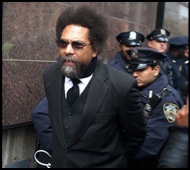

But this past week they did. Chris told me, “Steve, it was, as you might expect, very moving. Watching Mumia being affirmed with such enthusiasm and passion by two of the greatest African-American intellectuals in the country was, for me, a powerful and special moment. Mumia was crying when we left.” Then today (Wednesday, May 15), Chris Hedges was a guest on Pacifica’s DemocracyNow and Amy Goodman asked Hedges about his recent visits with Julian Assange and then his visit with Mumia. Chris said:
“I think the courage of a Manning, the courage of an Assange, the courage of a Mumia – I mean, how that man remains unbroken. I was there with Cornel West and the theologian James Cone. I mean it was a privilege for me. I mean, three of probably the greatest African-American intellectuals in the country, and certainly radicals. It’s those people who hold fast to the kind of moral imperative, or hold fast to the capacity for dissent, whether that’s Manning, who exhibited—I was in the courtroom when he read his statement—tremendous courage, poise, whether that’s Assange, whether that’s Mumia, let’s look at where all those three people are, because for all of us who speak out, that’s where they want us to be, as well. And that gets back to this AP story, because that is exactly the process that we are undergoing and where—if they win, where we’re headed.”
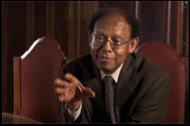
Imagine.
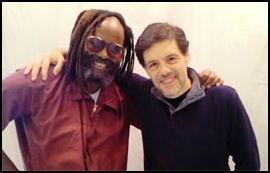
Imagine. It’s easy if you try.
The Hat Trick
02/05/13 10:36

Written by Stephen Vittoria
(Washington, D.C.)
When it comes to the film showing around the country, three cities have especially significant meaning in terms of what they represent to Mumia Abu-Jamal’s story as well as his career-long critique of the American Empire: Beverly Hills, Washington D.C., and of course the so-called “City of Brotherly Love,” Philadelphia.
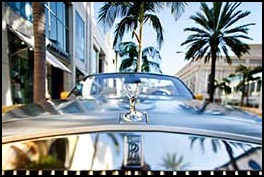
When we knew we were opening in Los Angeles, my home, we had a choice of various locales. As you know, LA sprawls out forever. We chose the Laemmle Music Hall in Beverly Hills because more than any other theater it was centrally located and it’s a great old venerable theater with a giant marquee – and on March 1 it advertised “MUMIA.” Then it hit me: Mumia (the long distance critic regarding the inherent evils of capitalism and class oppression and how wealth skews the reality of the human condition) is headlining at the theater that’s right in the heart of a city that symbolizes the opulence of greed and avarice… the materialism that warps the soul and buries our goodness even deeper beneath the surface. Plain and simple: Beverly Hills is the iconic representation of financial gluttony.
When I told Mumia about the play date in Beverly Hills on the main artery that dissects Tinseltown, that “Long Distance Revolutionary” was opening in the playground of those who just lavished praise and gold on two myths (Lincoln & Argo) at their masturbatory Academy Awards, he had a long and hearty laugh.
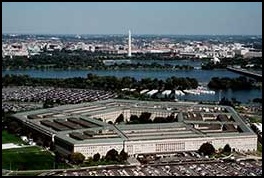
Playing Washington D.C. was also über important because it positions the critique of Empire and all its associated murderous tendencies right in the belly of the beast of New Rome… and the audience embraced the film, the story, Mumia, and the critique of the American mandarins with inspired passion.
One of my journalistic heroes, Dave Zirin, was in attendance (he’s also in the film) and began the Question & Answer session with an impassioned statement about the importance of the film and that LDR was a much-needed alternative look at Mumia’s life that rightly focused on the magnitude of his journalistic wherewithal. That meant a great deal to me.
DC was also a triumph because Eisa Nefertari Ulen’s piece in yesterday’s Washington Post was incredible – she got the film in a way that restores (for a nanosecond) my faith in the Fourth Estate – albeit a government-run entity. I guess this outstanding look at the film slipped through the proverbial cracks. Thanks Eisa.
My only regret in DC is that the current resident triggerman in the White House didn’t stop by. He needs to see the film. Badly.
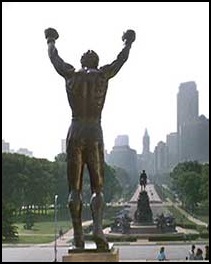
On May 3, this Friday, at Landmark Theater’s “Ritz at the Bourse,” Philadelphia’s native son, Mumia Abu-Jamal, once known as Wesley Cook, comes home… this time with his life story intact, unabridged, and sans the lies, innuendo, and mythical gibberish. This is the city where on 9 December 1981 lives changed forever. It is a day that will live in infamy, especially between the Delaware and Schuylkill rivers, between Germantown to the west and Holmesburg to the east.
In many respects, May 3 – the day “Mumia: Long Distance Revolutionary” opens in Philadelphia – is a day of reckoning for a kid friends called Wesley, and for a man we now call Mumia. No t-shirts, slogans, bumper stickers, or yelling – either in support of or with malicious intent. It’s a story about courage, about overcoming the repressive apparatus of forces hell-bent on enslaving the human spirit. Ultimately, it’s a story that offers an alternative to Beverly Hills (avarice), Washington D.C. (Murder Incorporated), and Philadelphia, Pennsylvania (lies).
Even Playing Field
08/12/12 22:58

Written by Stephen Vittoria
(Philadelphia)
Today, for five very plugged-in hours, Chris Hedges and I visited Mumia Abu-Jamal at the State Correctional Institution at Mahanoy, a dank prison buried deep in the woods of eastern Pennsylvania. First, a bit about Chris…
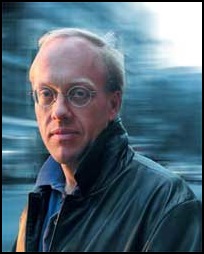
Back to SCI Mahanoy on a rain-drenched, 33 degree December day. As we’re checking in, it dawns on me: I’m starting to get to know the guards. I’m not sure if that’s good, bad, or just normal. Me: “Hey, how you doing? Him: “Good. Jamal?” Me: “Yeah, AM8335.” Him: “Yeah, I know.” Ion tests, pat down, x-ray machine, and it’s that long walk down that long hallway. Chris also visits prisons a lot. In fact he teaches inside prisons. A worthy endeavor.
As is always the case with Mumia, as soon as a new acquaintance sits down with him it's as if they've known each other for twenty years. We spoke in depth about the continued vicious march of Manifest Destiny - 21st century style - as well as the crisis of the American Empire. Chris is about to teach a class at Union Theological Seminary about empire and war, and Mumia and I are writing our new book "Murder Incorporated," so we had a scary confluence of similar ideas and thoughts. We shared lists of books that research on this broad topic (read: ugly reality) cannot do without.
We talked about the US Government's infiltration and disruption of the Occupy Movement, reminiscent of similar actions undertaken during the dark days of COINTELPRO. Chris has been an important voice for Occupy and had some intriguing first hand stories. We talked a lot about the big bizness of the prison industrial complex and the stranglehold net it throws over Black youth across the country. We even talked about the three images you would always find proudly displayed in the parlor of black homes during the sixties: MLK, JFK, and a blue-eyed Jesus. It was decided that JFK was the imposter of the three, unless Oliver Stone is in the room.
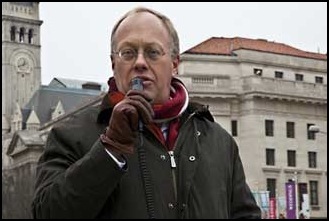
Bringing these two great journalists together for five hours proved one thing to me, something I already knew, but the confirmation is nice: Mumia Abu-Jamal, the journalist, the writer, the historian, can play on an even playing field with anyone, even giants. That is why his voice must continue to be heard, continue to reach around the world. It's like what former US Attorney General Ramsey Clark says in "Long Distance Revolutionary" - "Mumia’s words should be taught to schoolchildren. We’d be a better people and a better country."
STARZ/Denver Film Festival
06/11/12 09:36

Written by Stephen Vittoria
(Denver)
I have very mediocre memories of visiting Denver, Colorado.
My only good thoughts regarding Denver are these: Jack Kerouac wrote a few words about it and the 1987 New York Football Giants went to Pasadena and kicked the Broncos ass in the Super Bowl. Phil Simms had the game of his life and Lawrence Taylor was, well Lawrence Taylor was Lawrence Taylor – the greatest linebacker of all time. That’s it. My time in Denver was defined by looking forward to getting out of Denver.
Until now.

The film played, the audience was plugged in. The Q&A went very well and as always, the festival staff had to throw us out to get the next screening ready.
But for me, the highlight of the evening happened as we were walking outside, ready to find a bar, some food, and then another bar. A gentleman walked up to me and had something very important to tell me. I could tell because he was nervous and really wanted to share his thoughts with me about Mumia. Not about the film. Mumia. It turns out Pete worked with Mumia in Philadelphia radio in the late 70s and early 80s. It turns out Pete worked really closely with Mumia in Philadelphia radio in the late 70s and early 80s. And, as it turns out, Pete thought Mumia was the sharpest person he ever worked with in radio. He related a first hand story of Mumia under pressure: a producer breaking into the studio during a commercial break and telling Mumia he had to cut the five-page story written by numerous staff people that was sitting right in front of him ready to air, and instead, air a new one-page condensed version in sixty seconds. GO! Pete said Mumia took the pages and pen, starting ripping, circling, drawing arrows, writing connecting phrases, and hit the air with a perfect one-minute script… and then smoothly passed the baton. Pete says he remembers that moment to this day. He was emphatic: “Hands down, Mumia was the best radio reporter I ever knew.”
My first response to Pete was “Where the hell were you when I was making this film?” What a great story… and what a great moment to recreate in stylized fashion that would really tick off those documentary purists.
Thanks, Pete… and thanks Denver for a great festival. It was an honor to share Mumia’s story with you. And when in Denver, definitely go to a bar/restaurant called Jonesy’s - great food, great wine, and great people.
Now I have some really good Denver memories.
Eddie Vedder
01/11/12 10:51

Written by Stephen Vittoria
(Los Angeles)
Like every other creative endeavor on the planet, music is very subjective. So subjective, in fact, that as a filmmaker you have to trust your instincts, your vision (which is blurry a lot as you make a film, especially one you care so goddamn much about). “What do I wanna hear at this point? What makes this cue kick ass?” Some folks are going to say, “Wow, that blew me away.” And others are going to say, “What the hell were you thinking?”
Enter Eddie Vedder.
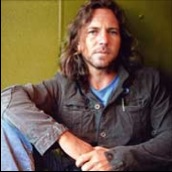
Because at that moment we realize that the story of this long distance revolutionary is about love. Plain and simple, it’s about love. The editor of City Lights Books, Greg Ruggiero, sums it up this way in the film: “I think Mumia would agree with what Che said: "At the risk of sounding ridiculous, a revolutionary is guided by feelings of love and for love of the people.” Once again…
Enter Eddie Vedder.
Because for a film that rages hard like this film rages, in the end it lands soft. It lands with love… and that happens naturally because Mumia’s rage against the machine doesn’t stem from anger. Not even close. It stems from love. Like Greg says, “love of the people.” And so “Society,” written by Jerry Hannan and recorded by Eddie Vedder, is a soulful song, it’s a beautiful song. And I wanted the film to end with a song that sounded like Mumia… what would his soul sound like if we heard it as music? For me, it was about capturing a man at peace with himself in one of the worst places on Earth. At peace because he’s right, because his fight has always been right…
Society, have mercy on me
I hope you're not angry if I disagree
Society, crazy and deep
I hope you're not lonely without me
Here’s a clip of Eddie Vedder singing “Society” live.
Lakota Harden
29/10/12 07:57

Written by Stephen Vittoria
(Los Angeles)
Lakota Harden was one of my favorite interviews during the entire process of making LONG DISTANCE REVOLUTIONARY – and she doesn’t appear in the film. Sometimes this happens… great moments end up in digital purgatory (used to be the editing room floor).
Lakota Harden is an orator, activist, community organizer, radio host, and poet. She has dedicated her life, as a daughter of seven generations of Lakota leaders, to liberation and justice. Lakota first became an accomplished speaker as a youth and representative of the early American Indian Movement's “We Will Remember” Survival School on the Pine Ridge reservation, which was established out of the 1973 Wounded Knee occupation. She has continued her activism over the years, working with the International Indian Treaty Council, Women of All Red Nations, and the Black Hills Alliance.
Lakota has been inspired by the life and revolutionary writings of Mumia Abu-Jamal. She remembers the first time she heard his voice and his words on her car radio and having to pull off to the side of the road. She cried… and this didn’t end up in the film. One of the great screenwriters of all time, William Goldman, has written about the unfortunate phenomenon of a great moment not making it into the final cut of the film. This is one of those instances. But the home video version of this film will include Lakota – as much as I can get in because she’s great, and powerful, and important to people who care about justice everywhere. Here’s a great example of Lakota… and it’s a rough cut… and it’s a rough cut edit… and as I watch this piece, I’m asking myself: How did this not end up in the film???
Peter Coyote
21/10/12 22:06

Written by Stephen Vittoria
(Los Angeles)
Okay, I’ve worked with many outstanding narration actors and actresses, but after working with Peter Coyote I reached this conclusion: there’s Peter and then there’s everyone else. Kind of like Eddie Vedder’s voice – there’s Eddie and there’s everyone else.
For LONG DISTANCE REVOLUTIONARY, I had this idea that the storytelling narration of the film should be done onscreen and by an ensemble cast of really good performers. It’s not really a practice we see in many documentaries. Critics and naysayers may knock the technique as being overly dramatic or manipulative because they want their docs to be “objective.” Well, here’s the rub when it comes to so-called objectivity in any creative endeavor and journalistic undertaking: it doesn’t exist. It’s a myth. Hunter Thompson told me one time that objectivity exists in two instances: obituaries and baseball box scores… and then he said, “Bullshit. It doesn’t exist anywhere. Fuck me. And fuck you for not questioning me.” Gonzo at his best.
I gravitated to the dramatic onscreen narration because I wanted to bring Mumia’s brilliant and searing words to life. And since I couldn’t film or record Mumia in-person, I had to rely on great people… like Rodney Charles, Christina Moses, Eartha Robinson, Rachel Hastings, Elijah Hall, Howard McNair, and Sheila Grenham who brought Mumia’s words to life – lifted them right off the page and drove it home, delivered the mail, made it real.
But back to Coyote. We filmed Peter in the KPFA radio studios in Berkeley and the passages I reserved for Peter was the narration I wrote to carry the story forward – some of it straightforward, some of it with piss and vinegar. Well, Peter does these things in one take and does them with perfection. You say “action” and Peter makes your words sound great and sound right. He makes you a better writer when he interprets your words, your phrasing, and then nails it. Here’s an example…
Finding Mumia Abu-Jamal
18/10/12 15:01

Written by Noelle Hanrahan
(Philadelphia)
In the winter of 1992, I was looking for a voice from America’s death row. My search took me to lock down units on the largest death rows in the country: California, Texas, Virginia, and Pennsylvania. I was seeking a perspective that would illuminate the harrowing places where men and women wait to be ritually killed at the hands of the government. This voice would bring into focus and breathe life into numbing words and dry statistics – capital punishment, gas chamber, solitary confinement, corrections, and mass incarceration.
Here I was, a young reporter, trying in the best tradition of investigative journalism to cover the story. I was asking a simple question: what does this all mean? Prisons in the United States are an epic story. Mass incarceration and the jailing of one in forty-six people during their lifetime (one in three for Black men) is culturally defining. As a broadcast journalist I needed a voice on the ground, someone who had lived this experience. I needed someone to share with the audience what it means for a country to never quite let go of its slavery.*
Clearly, racism was driving U.S. carceral policies; by the early 90s slavery was back.
Could a country incarcerate the most people per capita on the planet, employ the death penalty with ferocity, and incarcerate a generation of young black men, without experiencing devastating economic and spiritual consequences? Prisons verses preschools is not a slogan: it is a choice.
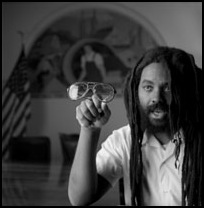
For more than a decade, Mumia’s voice had been silenced. He was a journalist trapped in solitary confinement on death row – his melodic silky baritone, extinguished. Mumia Abu-Jamal began his career in journalism in 1969 as a writer for the Black Panther newspaper. Throughout the 1980s, he was a prominent broadcast journalist in Philadelphia. Like many Black men of his generation, he entered prison, arriving at Graterford in 1981.
In July 1992, I handed Mumia Abu-Jamal a microphone and his broadcast career resumed. These were his first radio broadcasts since he was shot and arrested. For a few hours on that hot summer day in rural Pennsylvania, Mumia was back in a funky old recording studio… even the thick Plexiglas separating talent from engineer was the same. The only difference was the heavily armed guards and his tightly shackled wrists.
For the last two decades we have produced weekly broadcasts. I have found Mumia’s perspectives searing and profoundly illuminating. He tackles the vast implications of incarceration head on. And his delivery is unique and compelling. I often relate that he has the vocal talent of James Earl Jones, though trapped in a concrete box. He is a world class broadcast journalist. But beyond the talent, and brilliant writing, he also infuses each essay with a profound humanity and respect for his subjects.
Such a compelling belief in the poor runs counter to the government’s right wing narrative. It is also a perspective that would not go unnoticed and unpunished. Battling and breaking through the censorship of Mumia’s voice has been a tremendous fight. As Mumia states, “The state would rather give me an Uzi than a microphone.” And as Mumia would say: keep listening, keep rumbling, and take this journey with us. You can start by going to see the film or bringing it to your town.
Noelle Hanrahan, founder of Prison Radio, is a producer on the Street Legal Cinema production “Long Distance Revolutinoary: A Journey With Mumia Abu-Jamal.”
*Thirteenth Amendment to the U.S. Constitution. Neither slavery nor involuntary servitude, except as a punishment for crime whereof the party shall have been duly convicted, shall exist within the United States, or any place subject to their jurisdiction.
http://en.wikipedia.org/wiki/Incarceration_in_the_United_States
The Conversation
15/10/12 15:37

Written by Stephen Vittoria
(Los Angeles)
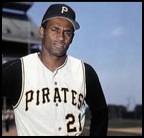
Nat Turner
12/10/12 12:23

Written by Stephen Vittoria
(Los Angeles)
When I think about why I made this film, this passage from Mumia’s writings invariably comes to mind. I think it captures his deep compassion and love for those living under the oppressive weight of tyranny. In fact, the beauty that emanates from this man who has also lived his life under the oppressive weight of tyranny is incredible. Dig it…
"Here and there in the barrios and the favelas, among those who have least, beat hearts of hope, fly sparks of overcoming."
His gift as a journalist, as a writer, and now as a historian is his innate ability to focus our attention on the core essence of a subject or a person. Here’s a great example: check out this clip from “LONG DISTANCE REVOLUTIONARY” as Mumia evokes the spirit of Nat Turner, who was executed by the State on November 11, 1831. Turner’s body was then flayed, beheaded, and quartered. God Bless America.
Aya de Leon
07/10/12 20:29

Written by Stephen Vittoria
(San Francisco)

Well, we’re fortunate because Aya graces and dignifies LONG DISTANCE REVOLUTIONARY with her insight, passion, as well as another remarkable performance, this one from her own spoken word poem entitled “In the Flesh.” She’s accompanied on vocals by Ahsabi Monique Burris in this haunting moment. Take a listen…
Also, Aya will be attending the second screening of LDR at the Mill Valley Film Festival on Monday, October 8 at 4:45pm. There will also be a Q&A after the film with myself and Noelle Hanrahan. (Sequoia Theatre, 25 Throckmorton Avenue, Mill Valley, CA 94941). If he can, Mumia will be calling in live..
Michael Parenti
03/10/12 08:24

Written by Stephen Vittoria
(Los Angeles)
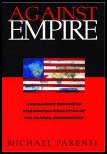
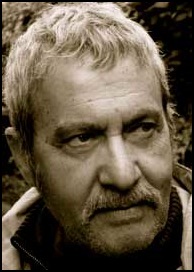
This clip didn’t make it into the film, but like a lot of clips that didn’t make it into the film, it’s a great piece. Michael offers some great tongue-in-cheek fun with regard to torture and human rights abuse. See, even torture can be fun and games if you just lighten up… just ask your government and sweethearts like Charles Graner and Lynndie England. C’mon, take that taxi to the darkside.
San Francisco
29/09/12 09:56

Written by Stephen Vittoria
(Los Angeles)
San Francisco (and the entire Bay Area) holds a very special place in the life of “Long Distance Revolutionary.” And not just because we interviewed a number of extraordinary people in the Bay Area, that’s the practical reality, but really because the spirit of San Francisco runs through the film like a main circuit cable.
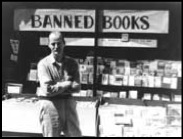
The beats evolved into the counterculture movement of the mid-sixties that was thriving in San Francisco and it was ground zero for a revolutionary movement that was taking on a world of corruption – social and political… and it was this rumble that a young Wesley Cook aka Mumia would hear in a racist hot bed of corruption known as “the City of Brotherly Love.” The late, great Hunter S. Thompson captured the spirit of San Francisco in the mid-sixties with grace in Fear & Loathing in Las Vegas – a truly remarkable passage:
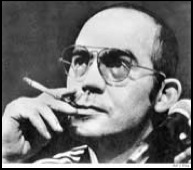
In the film, Rubin Hurricane Carter says that Mumia “is one of the lost souls of the revolution” – and I think that encapsulates Mumia best: like Hunter wrote above, Mumia has the right kind of eyes to see the spirit, see the love, see the change. After all, there cannot be change without the vision of change first… and Mumia has never stopped believing in and fighting for change. Indeed, as Carter declares – “a lost soul of the revolution.” While almost every soul of that historic revolution has sold out, compromised, thrown in the towel, or became a ratfink, Mumia (under harsh and inhuman conditions) has continued the battle for freedom, justice, and the un-American way.
And so have some of San Francisco’s (and Oakland’s, and Berkeley’s) favorite sons and daughters… and we were fortunate to capture their brilliance in “Long Distance Revolutionary.” At the Ella Baker Center, we interviewed Angela Davis. Also in Oakland, we interviewed science fiction master and Mumia biographer Terry Bisson. In Berkeley we sat down with Michael Parenti at his home and with poet Aya de Leon on Berkeley’s campus. In San Francisco we spent a great morning in Emory Douglas’s painting studio and then some time with publisher and writer Ted Nace as well as the Native American activist Lakota Harden. And finally, we traveled just north of Baghdad by the Bay and we filmed a remarkable interview with the inimitable Alice Walker.
Clearly, the spirit and the people of San Francisco mean a great deal to the essence and spark of this film, so it’s fitting that our world premiere takes place in the Bay Area at the 35th Annual Mill Valley Film Festival on October 6 at 12:00 noon at the Rafael Film Center (California Film Institute) in San Rafael. With the right kind of eyes (and some tickets), you can see the “inevitable victory over the forces of Old and Evil.”
Angela Davis
25/09/12 22:34

Written by Stephen Vittoria
(Los Angeles)
Angela Davis frames the ongoing systemic injustices of current-day America this way: “The challenge of the twenty-first century is not to demand equal opportunity to participate in the machinery of oppression. Rather, it is to identify and dismantle those structures in which racism continues to be embedded. This is the only way the promise of freedom can be extended to the masses of people.”
Recognizing and deconstructing the inhuman edifices of institutional racism has been the historic target of Angela Davis’s revolutionary drive for more than forty years. A kindred spirit with Mumia since their days of fighting the good fight with the Black Panther Party, Angela’s writings and sharp analysis aimed at building resistance to the corrupt machine are as relevant and inspired today as when she was writing insurrectionary essays from the Marin County Jail in 1971. Her vision and spirit continues to inspire people the world over, people who care deeply about achieving economic justice, personal freedom, and lasting peace in this violent and ruthless system.
Angela graced our film LONG DISTANCE REVOLUTIONARY with her powerful thoughts about the night side of American history and, of course, Mumia’s role in documenting the victories and defeats of freedom and justice in that history. Angela also documents with precision Mumia’s place in the pantheon of Black writers and historians who have courageously spoken truth to power throughout the American experiment. Here’s a clip that’s not in the film… Angela talks about the Panthers, Frank Rizzo, and the racist repression associated with the so-called City of Brotherly Love.
Contact
24/09/12 15:28

Written by Stephen Vittoria
(New York)
Up to this point, every visit with Mumia has been extraordinarily memorable even though he was encaged in a sterile concrete box and presented behind a giant sheet of Plexiglas that stands between inmate and visitor… as Mumia has written: “the state-made blockade raised under the rubric of security.” But this time in the waning days of summer, 2012, my visit with Mumia was sans the blockade. No shackles. No Plexiglas. No muffled sound. Contact. Flesh against flesh.
I left Manhattan and cut my way across the Garden State in a rented car with my beloved New York football Giants on the radio. I was chasing the sun into Pennsylvania, planning to spend the night in Frackville – an old railroad town dating back to the area’s coal mining days… a sleepy settlement about fifty miles northeast of Harrisburg.
I was looking forward to visiting Mumia. I wanted to bring him up-to-date on “Long Distance Revolutionary” (although we correspond via mail all the time and less frequently by phone) but more importantly, we had to discuss the book we’re writing together entitled “Murder Incorporated: Empire, Genocide, and Manifest Destiny.” It’s a project we’re both stoked about.
Once in the prison, getting to the visiting area was identical here at State Correctional Institution Mahanoy as it was at SCI Greene, one of the super max crown jewels in America’s prison gulag and Mumia’s last “home” before being transferred here to Frackville in the middle of the night in shackles and leg irons, and of course at gunpoint, in fact numerous guns along with psychological threats. Remember, Charles Graner of Abu Ghraib fame cut his teeth at SCI Greene.
The visiting room is like a large hospital waiting room with tables and chairs, lounging chairs, and a children’s playroom for fathers to spend time with their kids. The guard that ran the admission of visitors announced out loud that I won the award for traveling the farthest today, seeming to spit out the words “Los Angeles” and “Abu-Jamal” with a subtext that was obvious. He asked me if I wanted my prize now or later. I said later. He never mentioned what the prize was but I could guess what he wanted to give me.
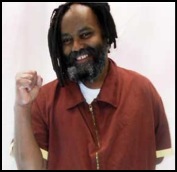
Contact.
The last time I visited Mumia, his dreadlocks were incredibly long and incredibly cool. They just about touched the floor. He cut them to shoulder length as part of a deal with the Department of Corrections, who were holding him in solitary confinement here at SCI Mahanoy for no apparent reason, even though his death sentence was set aside months before. Mumia was scheduled to join the prison’s general population. So, after thirty years in solitary on Death Row, he decided to cut his dreads for a little taste of freedom. And why not… I would have cut them after thirty seconds in solitary.
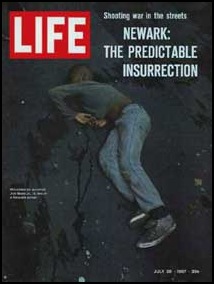
Then the PA System blares: “Pritchart, Wannamaker, Abu-Jamal – fifteen minutes.”
We have a rule, Mumia and I – we never let the fifteen minutes run out so our exit, our departure is on our terms, our decision to end it, not the prison’s… it’s a small victory, maybe really small, but it’s a victory nonetheless. “Love you, man.” “Love you, too, be good.” Our second hug is over. Mumia heads back to hell and I head back to freedom, a rented car, and Interstate 78 stretching east toward Jersey.
Mike Francesa on the FAN ushers me all the way back to Manhattan (love Francesa). During commercials on my iPhone I record my recollections for the book since I can’t take in a pad and a pen to write. I think I got all the major points or close enough.
Next thing I know I’m sitting in the East Village drinking wine, eating a great Italian meal, laughing with friends, enjoying a perfect New York City night… and my mind drifts back to Frackville and Mumia’s simple joy of eating something different than prison food – a sandwich from a vending machine and how much that meant to him… and on the heels of that thought more thoughts: his isolation, his hell, his horrific thirty-year plus existence, and suddenly the wine doesn’t sip as well, the food doesn’t taste as good, and my bourgeois life is on shaky ground… and I find myself hating my freedom because when one of us is wrongly imprisoned, we’re all wrongly imprisoned. When one of us suffers at the hand of state repression, we all suffer. Ultimately, it’s a failure of our collective will.